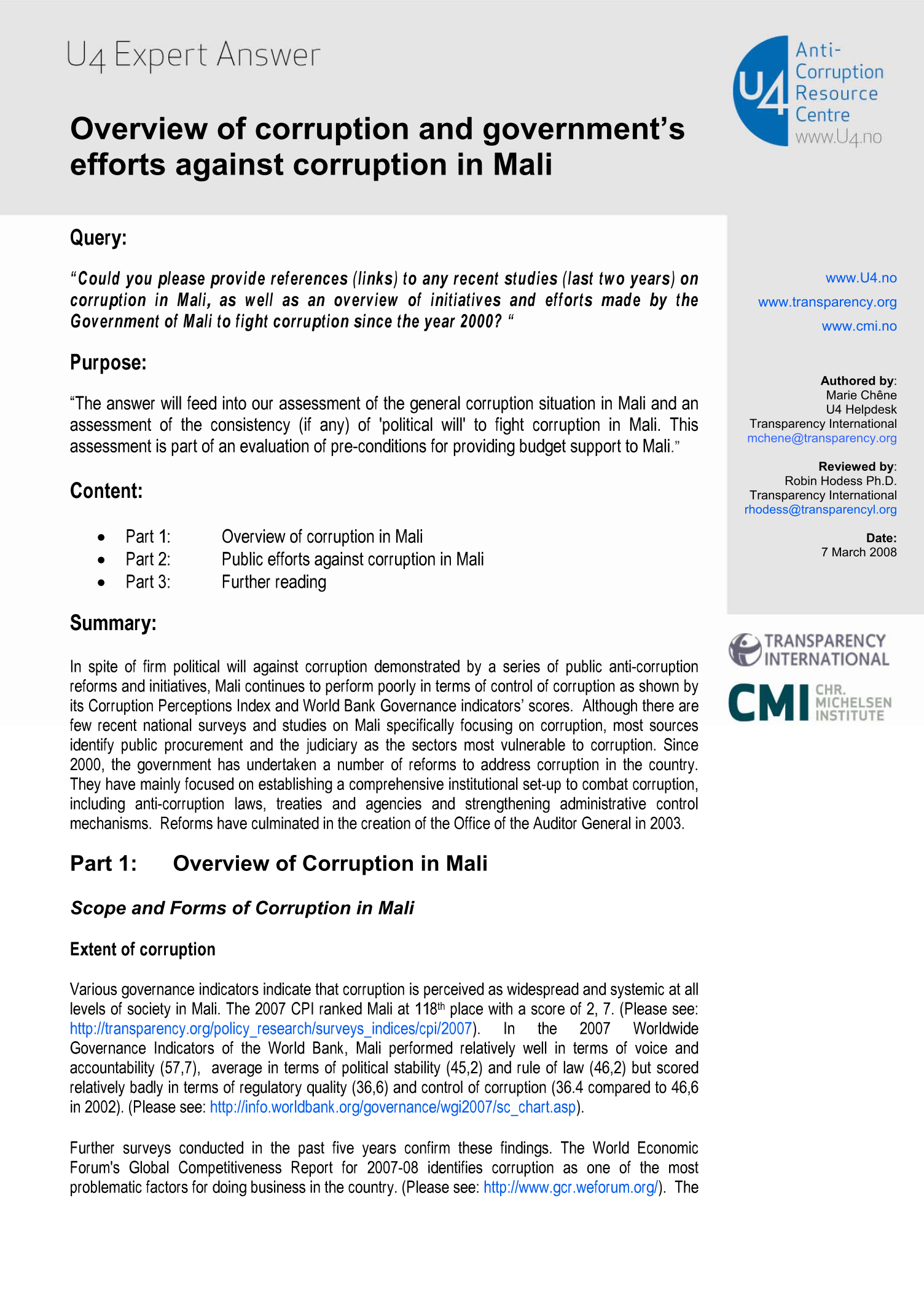U4 Helpdesk Answer
Overview of corruption and government's efforts against corruption in Mali
In spite of firm political will against corruption demonstrated by a series of public anti-corruption reforms and initiatives, Mali continues to perform poorly in terms of control of corruption as shown by its Corruption Perceptions Index and World Bank Governance indicators’ scores. Although there are few recent national surveys and studies on Mali specifically focusing on corruption, most sources identify public procurement and the judiciary as the sectors most vulnerable to corruption. Since 2000, the government has undertaken a number of reforms to address corruption in the country. They have mainly focused on establishing a comprehensive institutional set-up to combat corruption, including anti-corruption laws, treaties and agencies and strengthening administrative control mechanisms. Reforms have culminated in the creation of the Office of the Auditor General in 2003.

Cite this publication
Chêne, M. (2008) Overview of corruption and government's efforts against corruption in Mali. Bergen: U4 Anti-Corruption Resource Centre, Chr. Michelsen Institute (U4 Helpdesk Answer Helpdesk)
Disclaimer
All views in this text are the author(s)’, and may differ from the U4 partner agencies’ policies.
This work is licenced under a Creative Commons Attribution-NonCommercial-NoDerivatives 4.0 International licence (CC BY-NC-ND 4.0)
